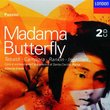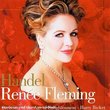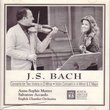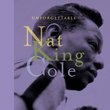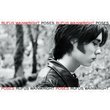| All Artists: Anna Netrebko, Elina Garanca, Gianandrea Noseda, Wiener Philharmoniker, Hector Berlioz Title: Anna Netrebko: Opera Arias Members Wishing: 1 Total Copies: 0 Label: Deutsche Grammophon Original Release Date: 1/1/2003 Re-Release Date: 9/9/2003 Genre: Classical Styles: Opera & Classical Vocal, Historical Periods, Classical (c.1770-1830) Number of Discs: 1 SwapaCD Credits: 1 Other Editions: Opera Arias UPC: 028947424024 |
Search - Anna Netrebko, Elina Garanca, Gianandrea Noseda :: Anna Netrebko: Opera Arias
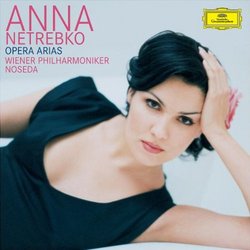 | Anna Netrebko, Elina Garanca, Gianandrea Noseda Anna Netrebko: Opera Arias Genre: Classical
Here, a year after her sensational Metropolitan debut as Prokofiev?s Natasha from War and Peace, comes the debut solo recital album of 30-something soprano Anna Netrebko. She hails from southern Russia, and her emergence f... more » |
Larger Image |
CD DetailsSynopsis
Amazon.com Here, a year after her sensational Metropolitan debut as Prokofiev?s Natasha from War and Peace, comes the debut solo recital album of 30-something soprano Anna Netrebko. She hails from southern Russia, and her emergence from the life of a conservatory student has a touch of the Cinderella tale?the bit, that is, about being discovered by Gergiev mopping floors for the Kirov as a part-time job and making her way into the Kirov's ranks. Later she became a favorite at San Francisco Opera, trying on for size a swath of comic and dramatic roles. Opera Arias parades Netrebko's way through a spectrum of vocal styles and characters. This mesmerizing lyric soprano engages--at times thrillingly grips--the listener with an imagination far greater than the disc's title (couldn't someone have dreamt up a less ridiculously bland handle?), but most significantly leaves an impression that the enterprise here isn't merely about singing. Netrebko's Ilia and Donna Anna are flesh-and-blood characters in real situations, as Mozart wanted them to be. The results are a bit more uneven with her bel canto heroines, where the required balance between Netrebko's emotional identification, so obviously a forte, and the musical phrasing thereof is a delicate one. Her shading of Lucia's mood swings, vocal and emotional, isn't consistently compelling. On the other hand, Netrebko uncovers gemlike facets not just in Gounod's "Jewel Song" but particularly in her stunning, passionately realized and beautifully phrased Manon (even if her trills disappoint). A shame that samples of her Russian repertory are missing here, though Netrebko's "Song to the Moon" from Dvorak's Rusalka concentrates and sets a mood with enviable mastery. Netrebko's musical intelligence and theatrical savvy seem destined to ensure her a magnificent career, so it's no surprise that many fans are already clamoring for more than the tease of an aria collection. --Thomas May Similarly Requested CDs
|
CD ReviewsAn Exceptional Debut Album Walter Fekula | New York, NY USA | 09/27/2003 (5 out of 5 stars) "Anna Netrebko is a very rare soprano who possesses a magnificent voice coupled with great beauty. Under her carefully guided, unrushed career, she has at the relatively early age of 31, sung in every major opera house in the world and is becoming increasingly sought after by every major opera house. This spring she debuted in Vienna and received seven curtain calls. A critic in Vienna wrote, ?New York, Munich, London, Milan, Washington, Madrid?all of them have had the chance to get to know the miracle from St. Petersburg. Last year she was the highlight of the much-discussed production of Don Giovanni in Salzburg. With her Traviata she has now conquered the Vienna Staatsoper as well...It really isn't a stretch to use the word 'miracle. Here one singing actress brought together everything that opera fans could hitherto only dream of. A young woman of confident appearance, in every moment completely present in the intelligently conceived, deeply moving interpretation of a character caught between joie de vivre, destructive love, and the gripping proximity of death. And all of this constantly attuned to the vocal side of her interpretation: faultless technique, perfect coloratura, a substantial soprano voice full of dark-hued luminous power in all registers. Next to that her richly shaded coloration made every emotion believable. She was radiant in joy and confidence, passionate in outbreaks of love, empty in deeply moving moments of despair." Die Presse (Vienna), April 4, 2003 Recognizing that Ms Netrebko is well on her way to becoming a major opera star, last year, Deutsche Grammophon signed her to a five CD contract and this is the much anticipated debut album. They pulled out all the stops and gave her the Wiener Staatsopernchor and the Weiner Philharmoniker as accompaniment.. It does not disappoint. Each of the 9 arias were carefully selected to show Ms. Netrebko?s beautiful and powerful vocal instrument to its fullest. This is a very intelligent singer. Her personality also shines through. We have Mozart, Berlioz, Massenet, Donizetti, Bellini, Gounod, Dvorak and Puccini. Each listener will have his own favorites. It is 63 minutes of absolute joy. They have set a very high standard and I will be curious to see how they will be able to top this debut album. This CD will become a collector?s item and I urge everyone to become acquainted with Ms. Netrebko" An Exciting Debut Ed Beveridge | London, England | 09/28/2003 (4 out of 5 stars) "I have encountered this exciting singer twice in the opera house, both at Covent Garden, both in Mozart. Her Servilia, I felt, was miscast; the voice was too large, the presence too strong for this young character. Her Donna Anna was a different prospect altogether. A surprise, for starters - she was a replacement for Alexandra von der Weth - but a very welcome one. Vocally, she stole the show, with "Non mi Dir" the peak of this achievement, with impeccable control and very, very subtle phrasing. The house loved her.So now she makes her debut recital disc. She is marketed well by DG - a beautiful woman, there is no shortage of glamour shots on the sleeve. Further, this is a disc from an already experienced artist with an element of maturity that makes her much more interesting than others making their first foray into the recording studio.The voice sounds healthy, bright, not exactly even, but has a rich palette of colour from a smoky lower register to a bright top that never sounds shrill. There is a resiny edge and darkness that draws the listener in. She isn't afraid to take risks, and will employ an acrobatic pianissimo here and a breathy low note there to give her singing dramatic point. She lacks a real trill and, whilst generally accurate, some of the coloratura is smudgy (especially in the Somnambula excerpt) but this is singing that goes a long way beyond a show of technical prowess. She is a serious artist who thinks before she vocalises.The choice of repertoire is interesting. Nothing Russian, some well-trod Bel Canto and French repertoire and some off-the-beaten-track Berlioz and Mozart,with Musetta thrown in. Her Lucia is most compelling and I loved her Manon, and her Anna did not disappoint. I can't quite see her as a Bel Canto singer, though - to me she sounds like a singer headed to Gilda, Violetta (already in her repertoire), Amelia Grimaldi and Desdemona with a long view to Trovatore and Don Carlos. French repertoire does suit her (if she could work on the pronunciation) and she is a fine singer of Mozart. Her sound is dark and brooding enough for Puccini - what a Liu she would be! - but I suspect Butterfly and Tosca are beyond her for the foreseeable future.Accompaniments are perfectly fine (a bit swift in some of the coloratura numbers)m the chorus sounds intermittently coarse, but all in all this is an exciting debut and shows Netrebko off to her advantage. She is clearly going places, and I very much look forward to hearing more." Fresh soprano blood Akimon Azuki | 09/07/2005 (4 out of 5 stars) "Any budding soprano that doesn't choose the usual warhorses, and opens her debut album with an aria from Mozart's Idomeneo, and turns it into a tour de force, sparkling performance, is worth all the hype. And the best is yet to come- the second track, Non mir dir from Don Giovanni is even better. Not technically, far from it: the way she fudges that trill at the end is astounding, but this Anna is so alive, so achingly beautiful, that it remains one of my favourites among the many versions I have heard over the years. Netrebko has performed Donna Anna on stage - to a great acclaim- and that shows here.
The rest of the album offers energetic Berlioz, great bits of Lucia - a wonderful mezzo Elina Garanca joins Netrebko on this one- and La sonnambula sung in a way that makes Dionizetti and Bellini palatable for me... The runs are little messy sometimes, but give Netrebko the vocal challenges, the idiotic libretti and a sleeping gown and she can act the hell out of it, even in a studio recording. The spunky Manon makes her mark in the gavotte, the Faust is charming- and devoid of many written trills and such, but it's good clean fun and she is putting some life into that chirpy classic. And then, the kinky Rusalka, lovely, strong and devoid of any of that cheese and swooning nonsense that many other singers have splattered on it. I love this opera and Mesicku aria is one of my big favourites, and I have heard countless renditions of it, from a near perfect Benackova to a very cool Karita Mattila to a horrible, slurring and scooping, bottom of the lake Fleming, and Netrebko really gets it right for me. When I was a kid reading all the stories about rusalki, this is how I imagined them- sad, erotic, and with some character. I can understand her Czech too, how often that happens! I guess only someone from our Slavic language pool would understand how well she controls that super rounded Russian oh's from overtaking what she is singing, and even though her diction is funny business overall, the voice more than makes up for it. The closing Musetta's Waltz is just about perfect- once again, not too much, not too little, would make me see the tired old Boheme if it played around here and she was in it... Netrebko has some work to do on varying the colors of her lovely, dark voice, and kicking up the diction, but she is shaping to be major economic force in the opera world and from this debut CD it is clear why- the looks are backed by a high wattage talent, acting skills and plain good taste." |

 Track Listings (9) - Disc #1
Track Listings (9) - Disc #1
